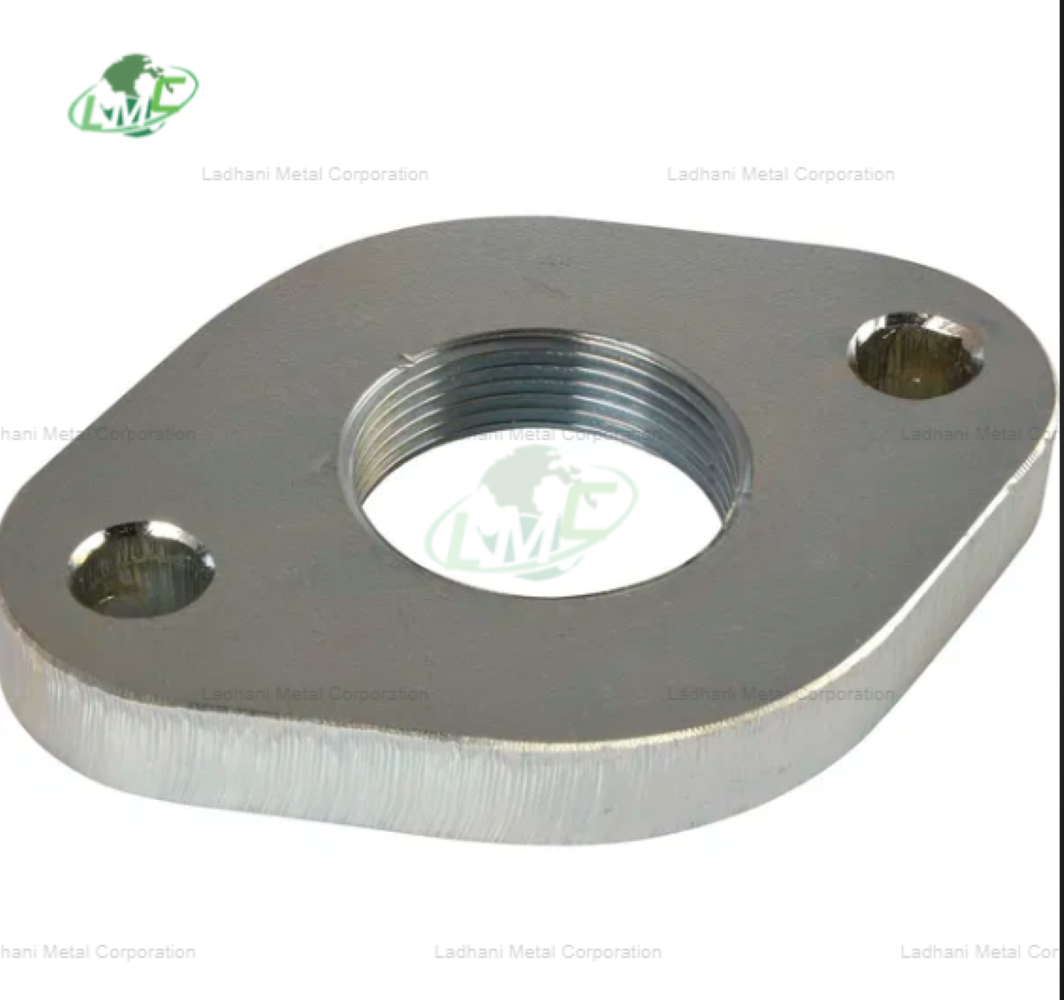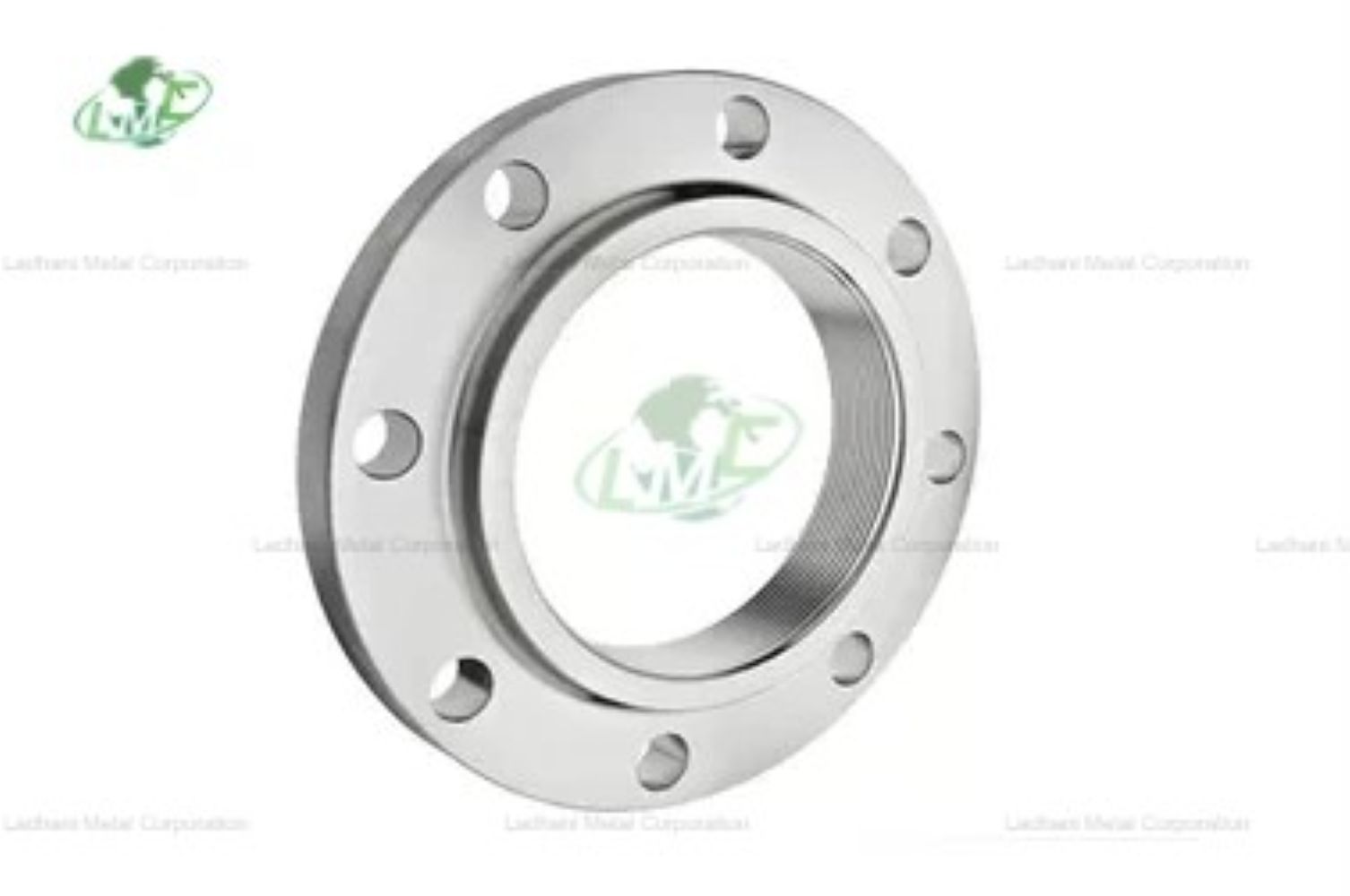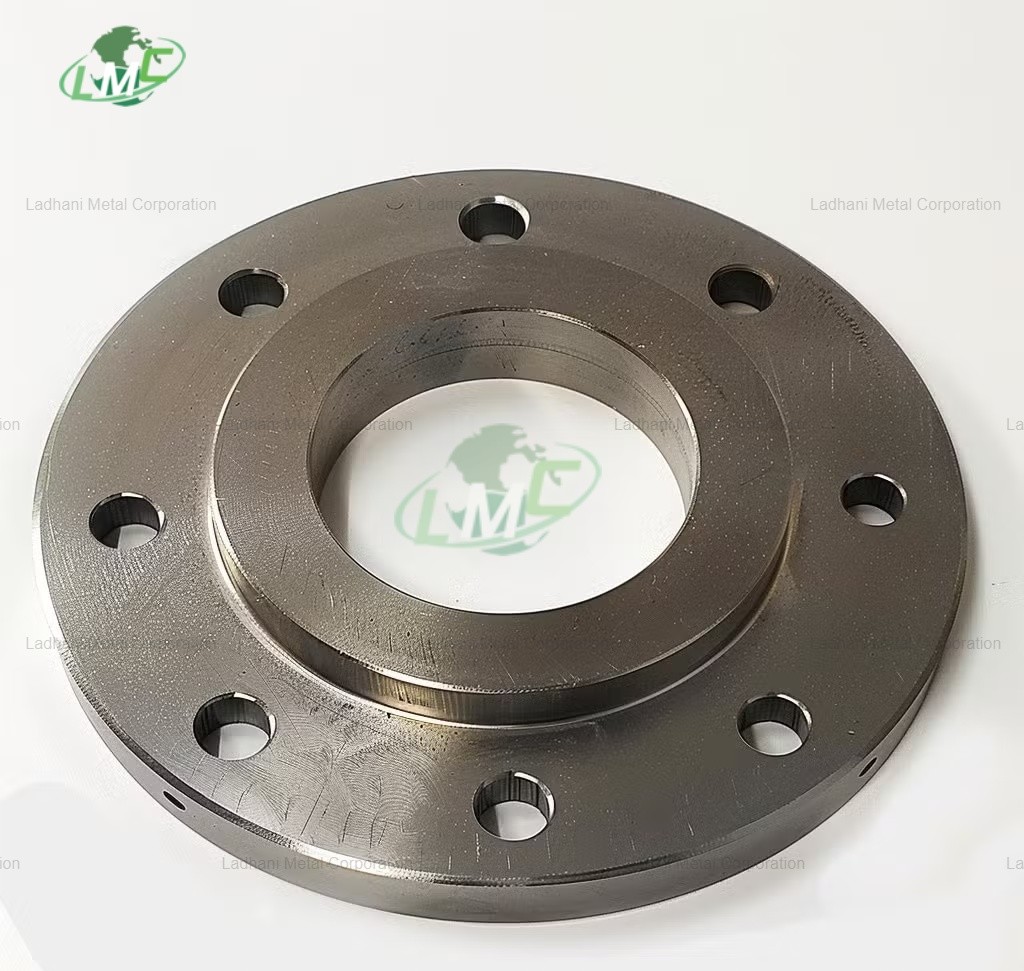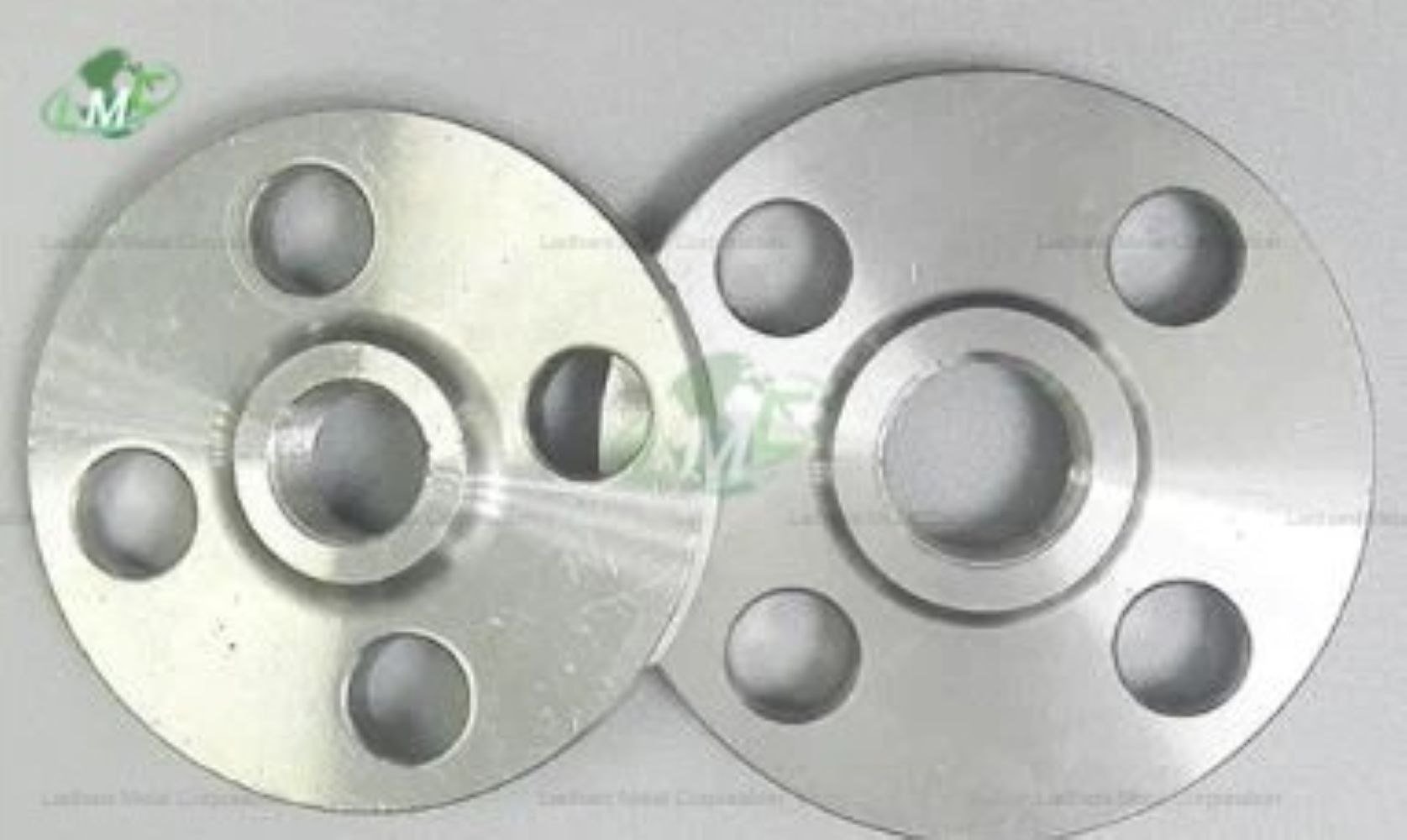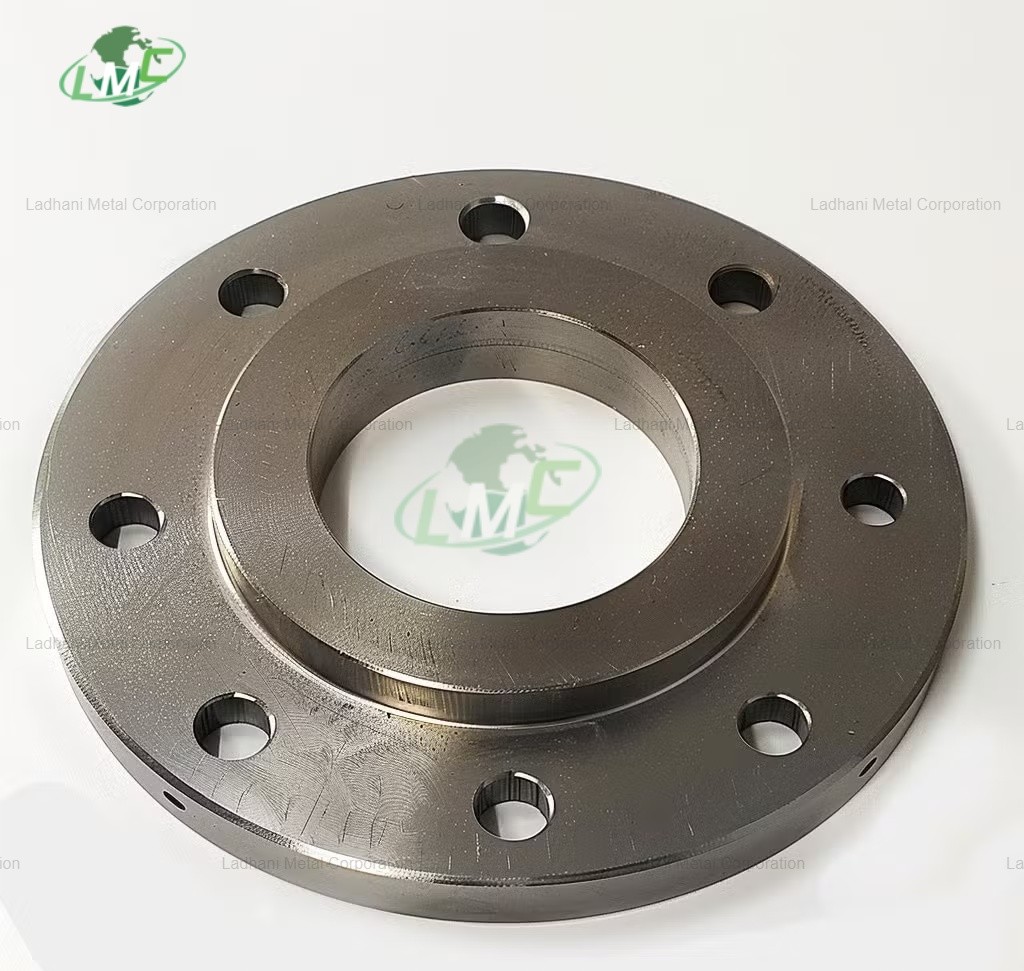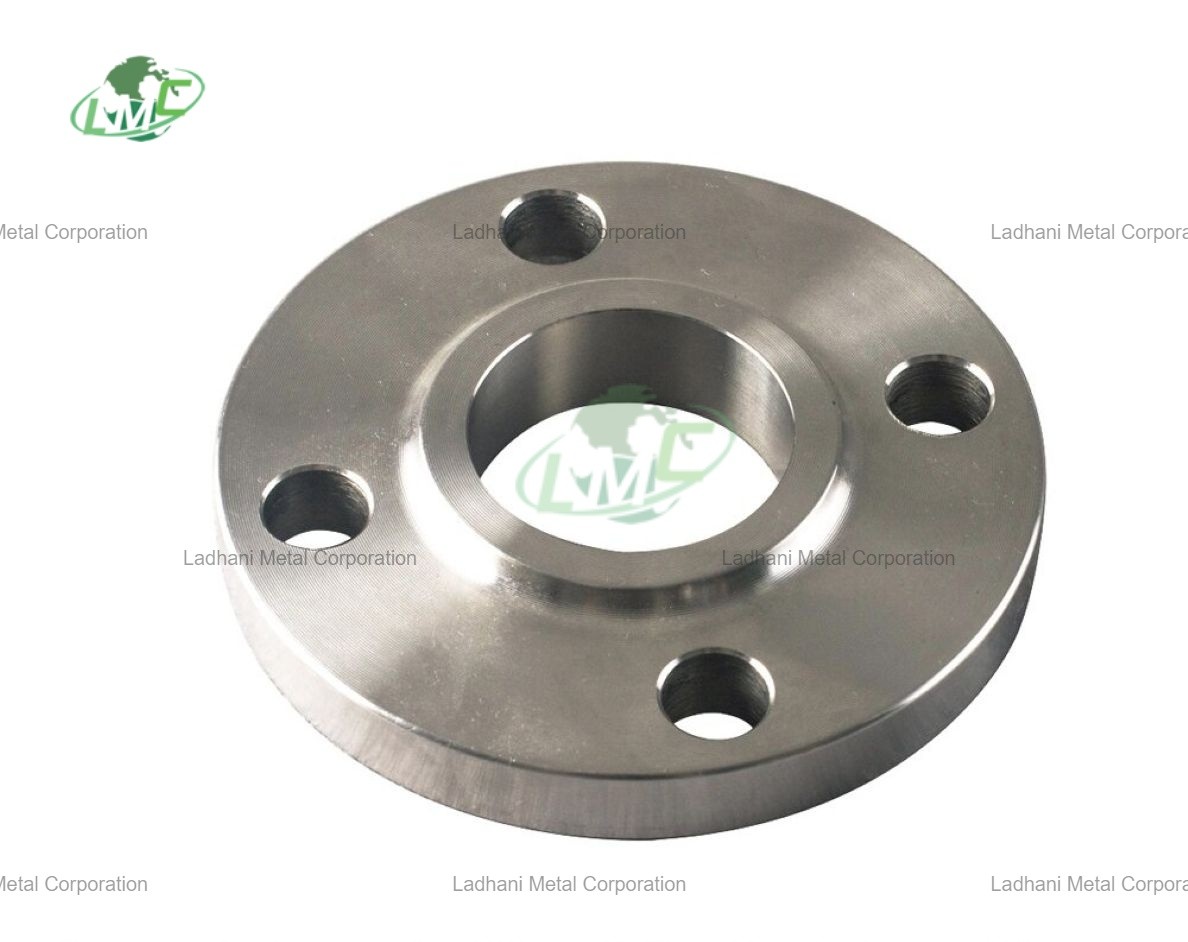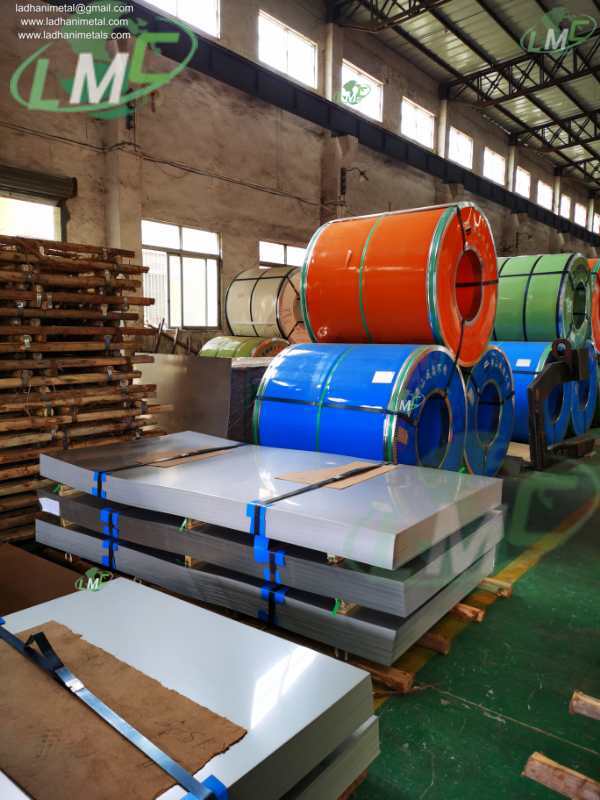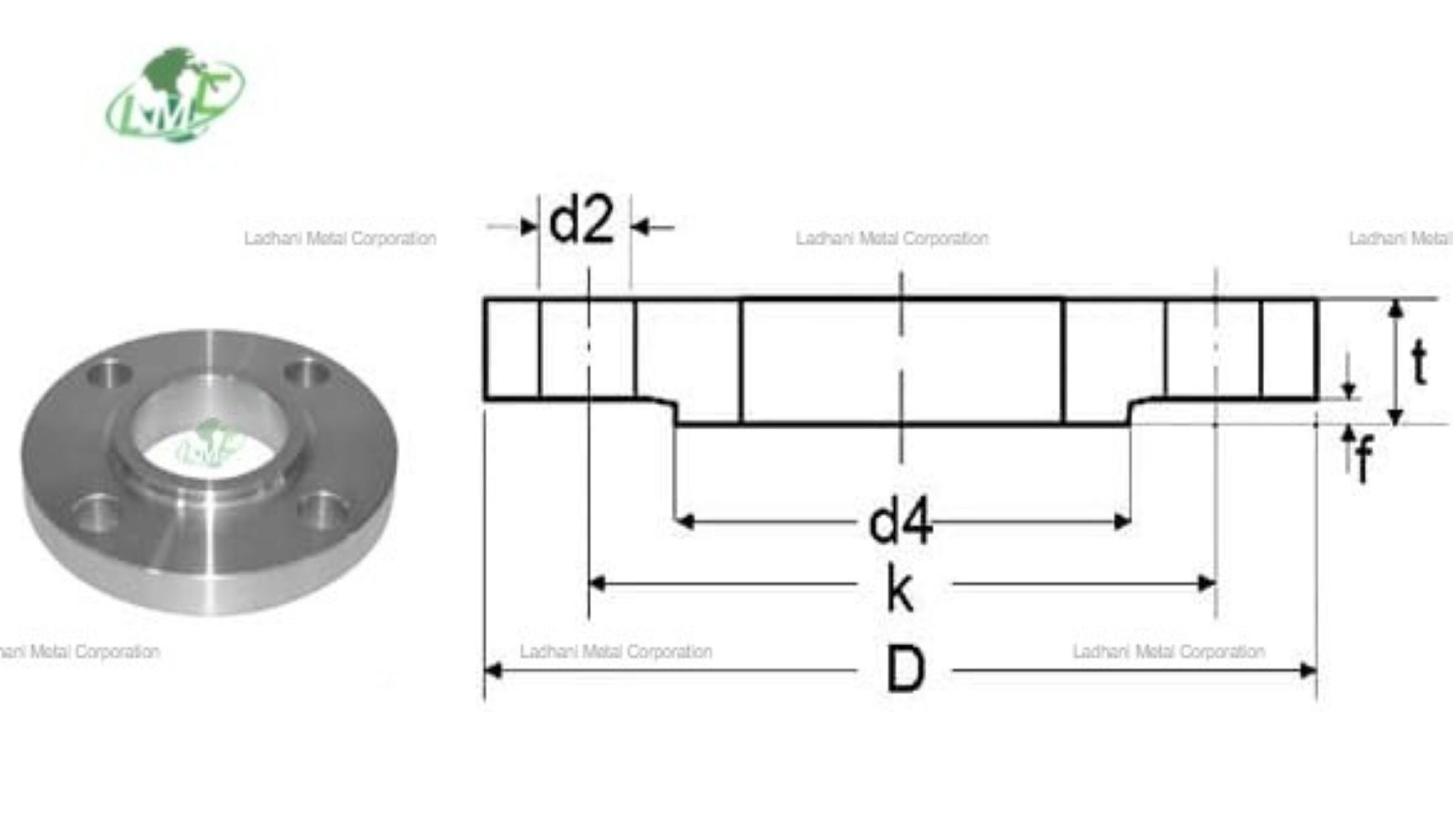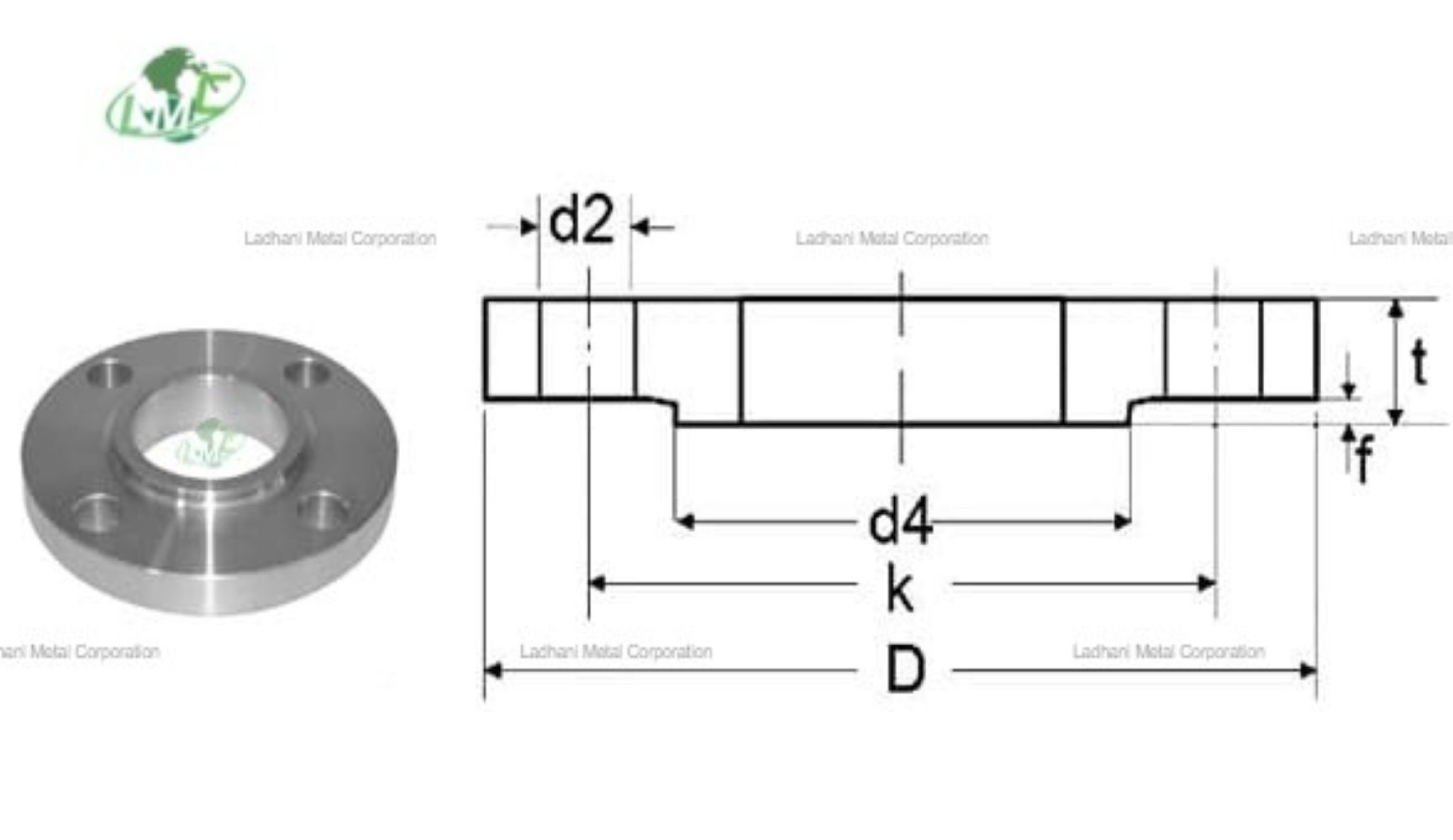The DIN 2558 Titanium Flange PN 6 is a precision-engineered component designed to meet the demanding requirements of modern industrial piping systems. Manufactured in compliance with DIN (Deutsches Institut für Normung) standards, these flanges are crafted from high-grade titanium alloys that offer exceptional resistance to corrosion, extreme temperatures, and chemically aggressive environments. Ladhani Metal Corporation is a reliable supplier of these titanium flanges, delivering products that are valued for their durability, lightweight properties, and long-term performance in critical applications. Types: Weld Neck Flange – Provides a strong, leak-proof joint suitable for high-temperature and high-pressure environments. Slip-On Flange – Easy to install, this flange type is welded on both sides and offers a cost-effective solution. Blind Flange – Used to block off the end of a piping system or pressure vessel, ensuring no flow passes through. Threaded Flange – Ideal for systems where welding is not suitable, this flange screws directly onto the pipe. Socket Weld Flange – Designed for small-diameter piping systems, offering a smooth bore and strong welded joint. Titanium Grades & Chemical Composition: Grade 2 Titanium (Commercially Pure): Titanium (Ti): ≥ 98.9% Iron (Fe): ≤ 0.30% Oxygen (O): ≤ 0.25% Carbon (C): ≤ 0.08% Nitrogen (N): ≤ 0.03% Hydrogen (H): ≤ 0.015% Features: Excellent corrosion resistance, good formability, and weldability. Commonly used in marine and chemical environments. Grade 5 Titanium (Ti-6Al-4V): Titanium (Ti): Balance Aluminum (Al): 5.5 – 6.75% Vanadium (V): 3.5 – 4.5% Iron (Fe): ≤ 0.40% Oxygen (O): ≤ 0.20% Carbon (C): ≤ 0.08% Nitrogen (N): ≤ 0.05% Hydrogen (H): ≤ 0.015% Features: High strength, excellent corrosion resistance, and good fatigue resistance. Commonly used in aerospace, marine, and industrial applications. PN 6 Rating: The PN 6 designation refers to a nominal pressure rating of 6 bar (87 psi), making these flanges suitable for medium-pressure applications in both industrial and marine settings. It ensures safe and reliable connections where corrosion and mechanical integrity are of critical importance. Features: Corrosion Resistance: Titanium provides outstanding resistance to saltwater, chlorides, and many acidic environments. High Strength-to-Weight Ratio: Offers strong performance while being significantly lighter than steel-based alternatives. Temperature Resistance: Suitable for use in high-temperature and cryogenic environments. Versatile Applications: Ideal for use in chemical processing, offshore systems, desalination plants, medical and aerospace applications. Easy Fabrication: Good weldability and formability allow for efficient installation and system integration. Longevity: Titanium flanges from Ladhani Metal Corporation are engineered for long service life, reducing maintenance costs and operational downtime. Ladhani Metal Corporation ensures each DIN 2558 titanium flange is manufactured with precision and tested thoroughly to meet the highest international quality standards, delivering performance and value across a wide range of industrial systems. #din2558 #din2558flanges #din2558titaniumflanges #titaniumflanges #flanges

